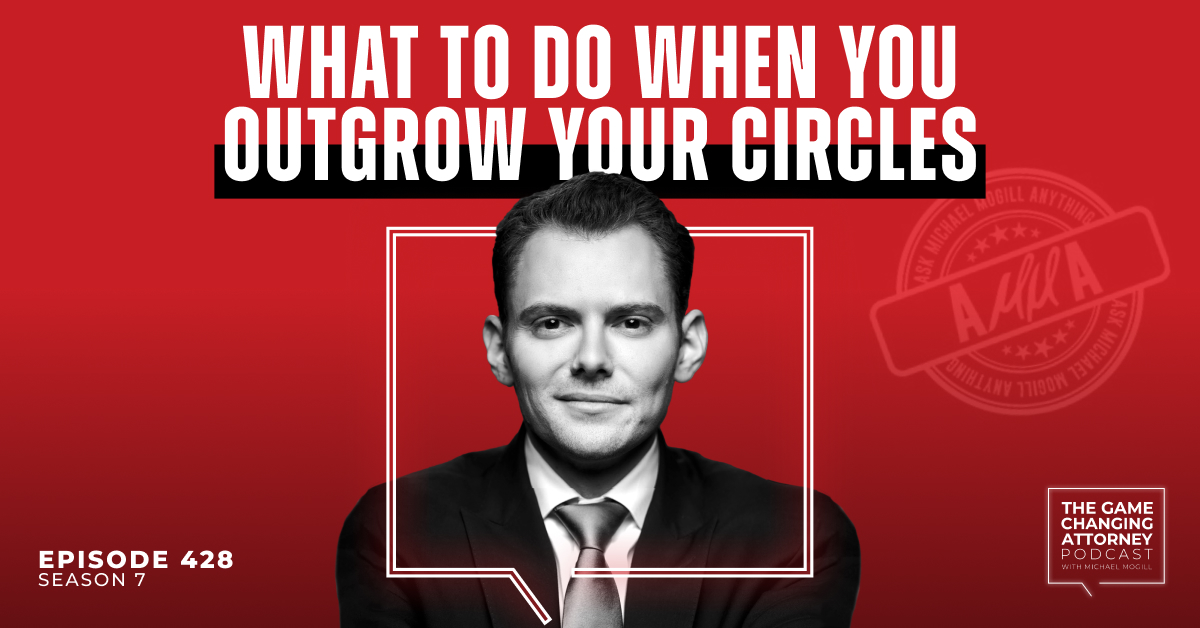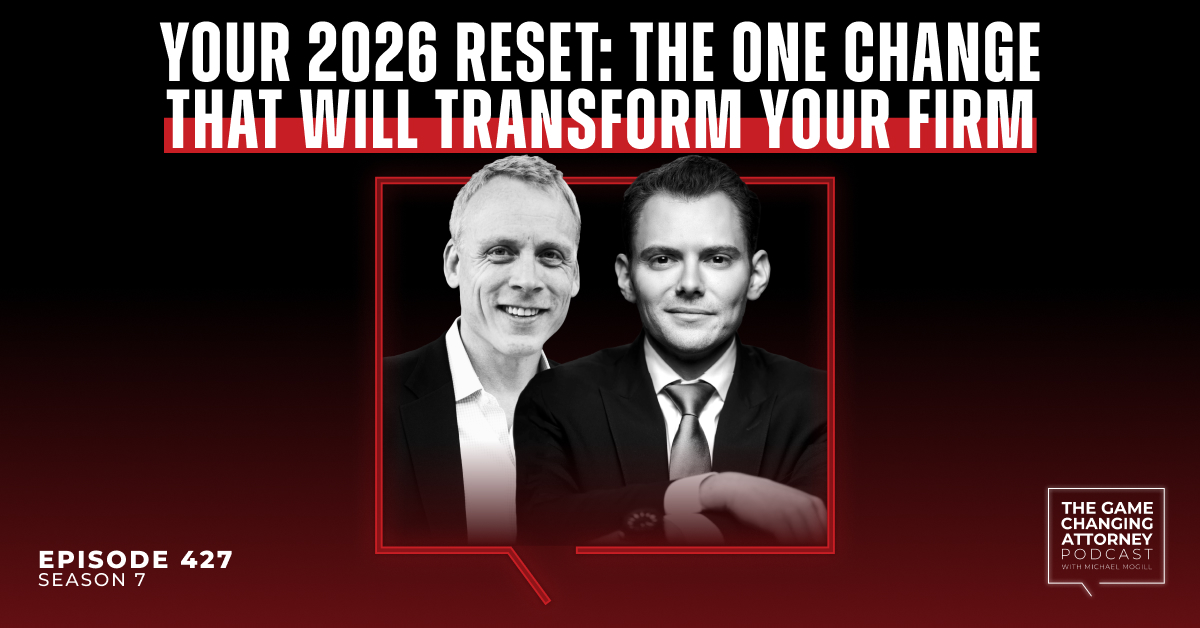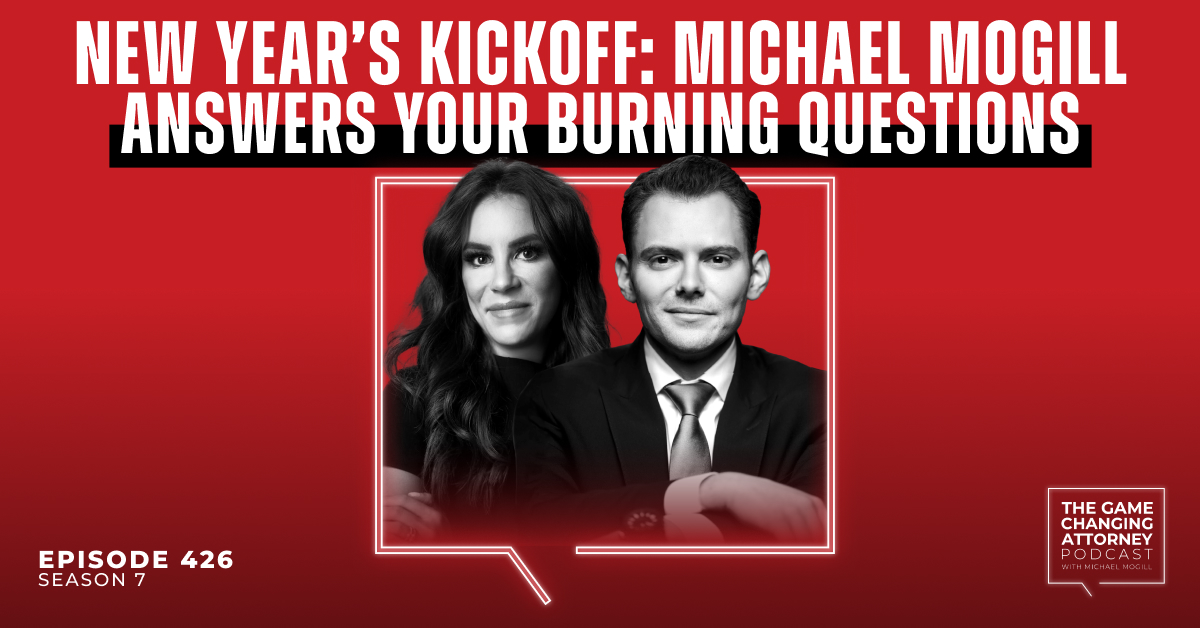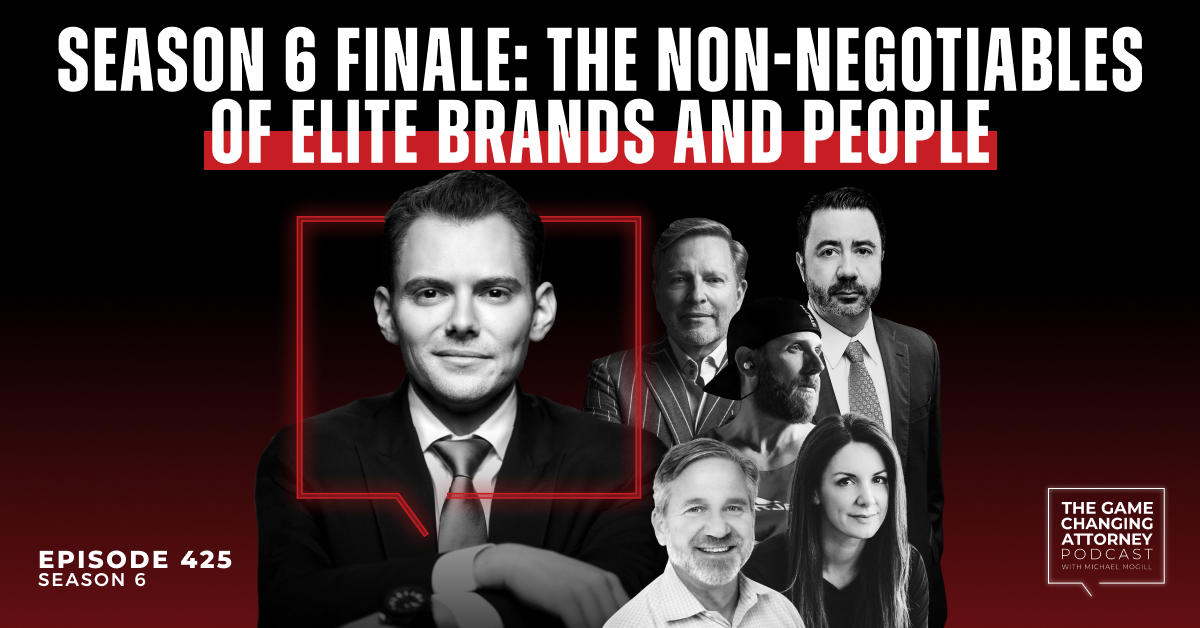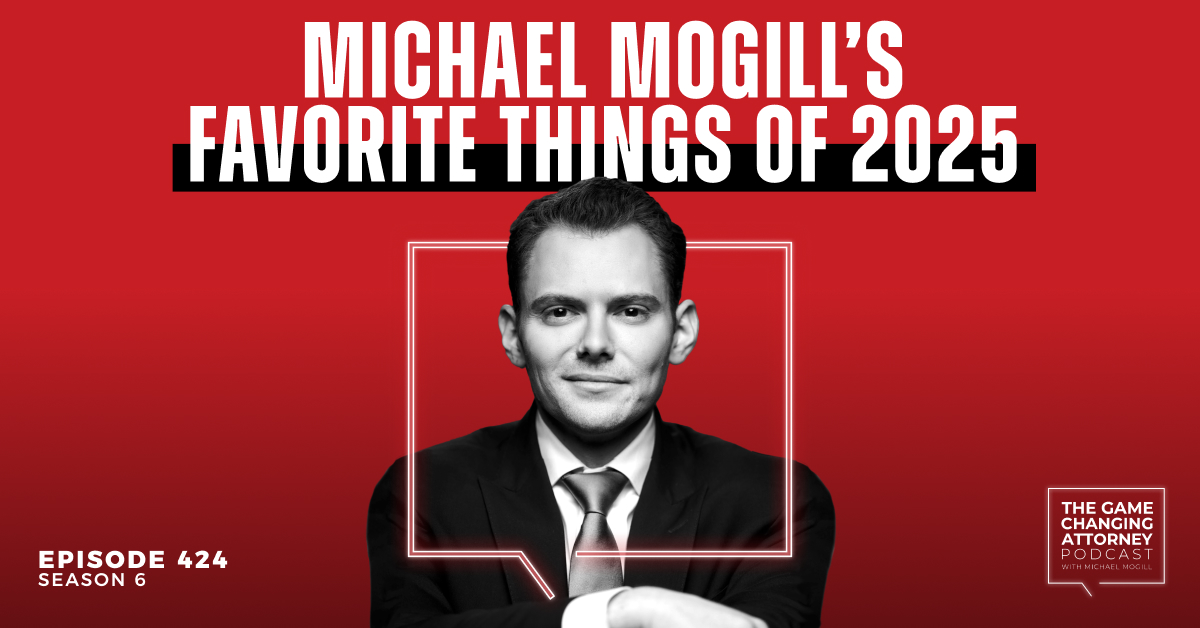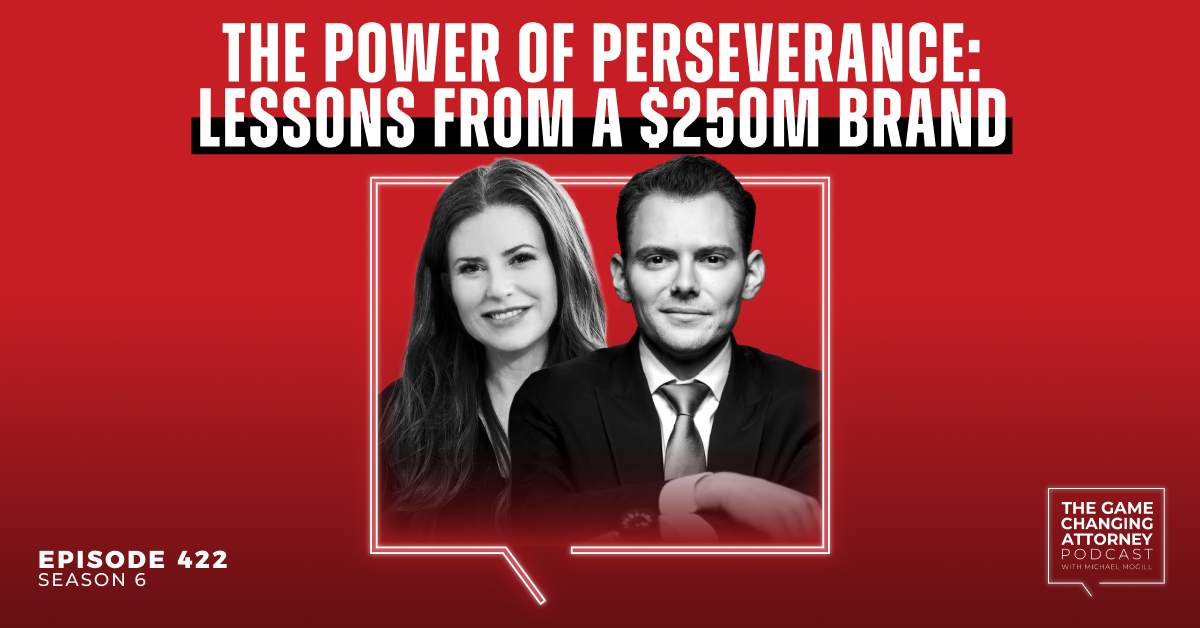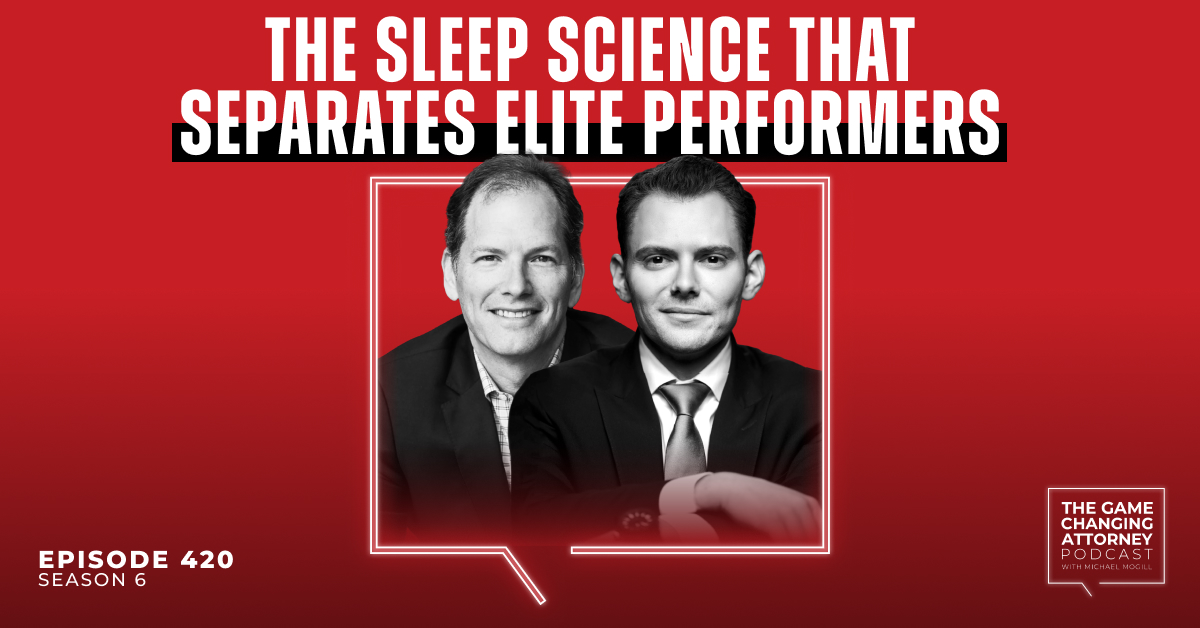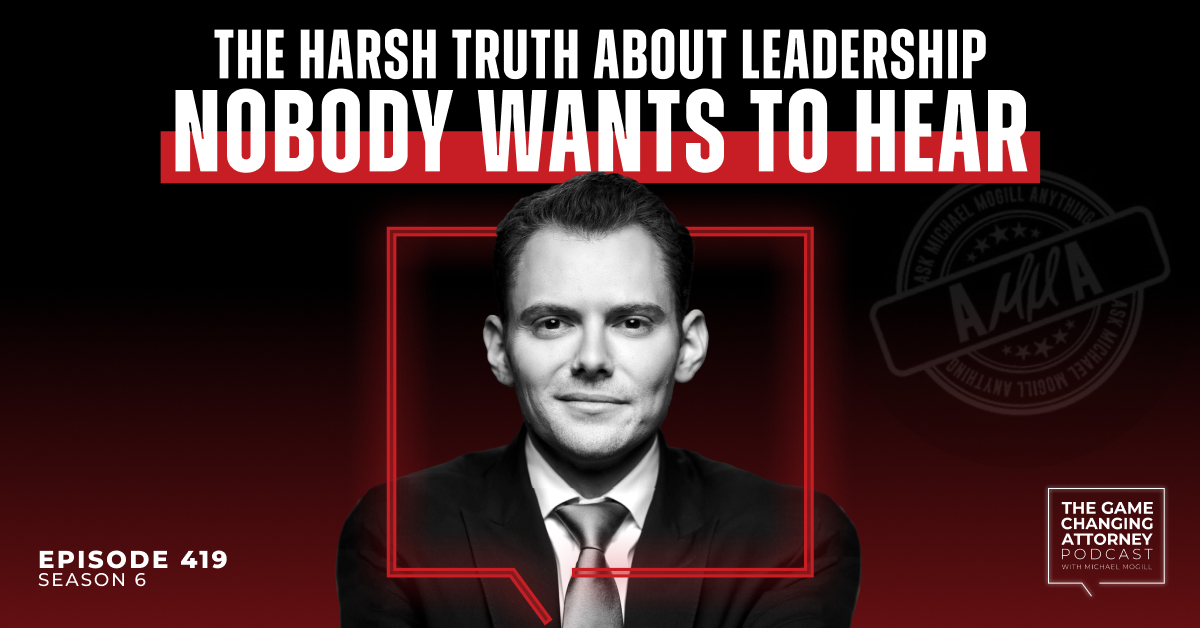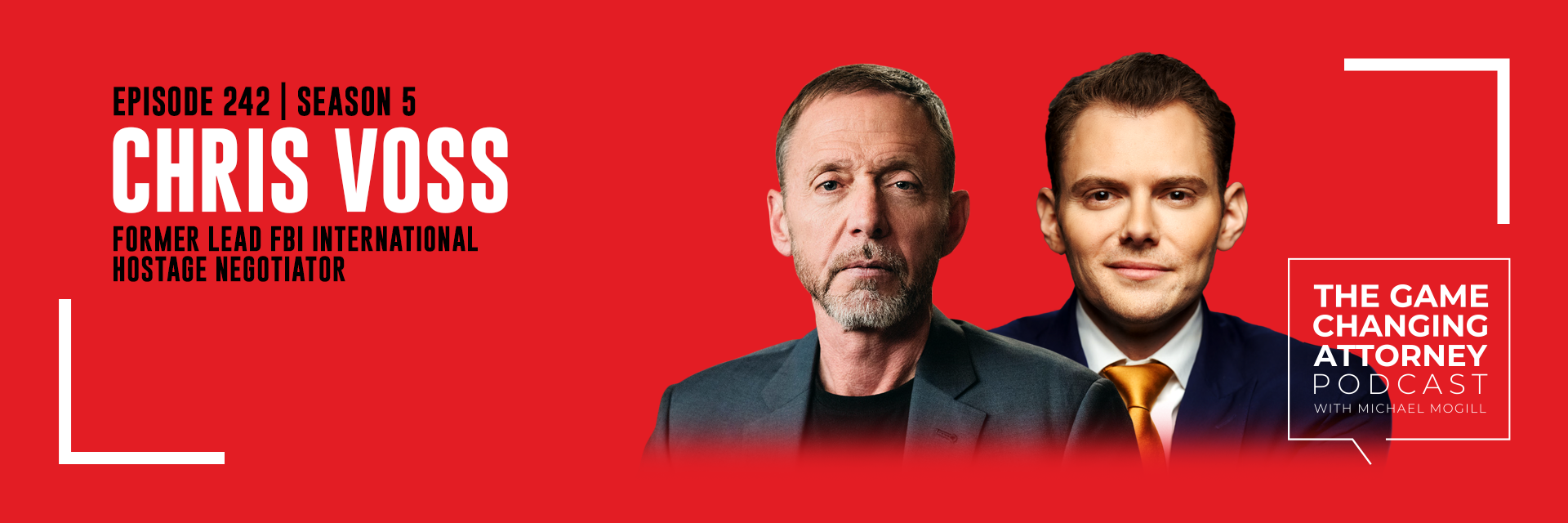
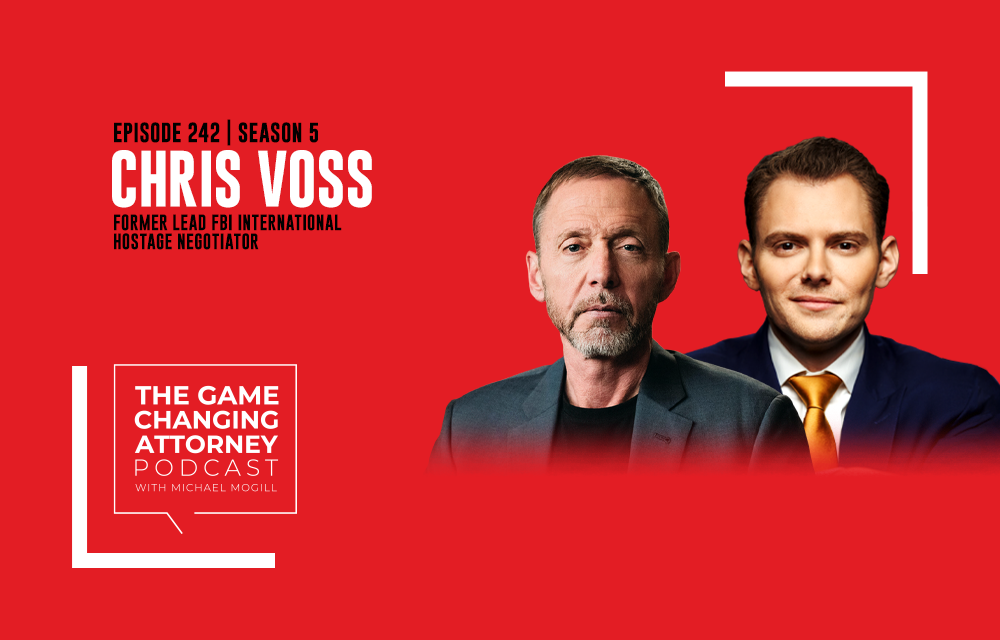
Episode 242 — Chris Voss — The Secret Ingredient of Successful Negotiations
Chris Voss is one of the world’s leading authorities on negotiation. As a former Lead FBI International Hostage Negotiator and CEO of The Black Swan Group, he’s spent years mastering the art of negotiation in high-stakes situations.
For law firm owners, negotiation isn’t a professional skill — it’s a daily necessity that touches every part of our lives. It ranges from reaching settlements with opposing counsel to managing team dynamics, to even deciding what’s for dinner.
In this captivating new episode of The Game Changing Attorney Podcast, Chris and Michael Mogill take a deep dive into:
- The hidden power of maintaining a positive frame of mind in negotiations
- The dangers of falling for the illusion of a “win-win” negotiation
- How generosity can be a secret weapon in your negotiation arsenal
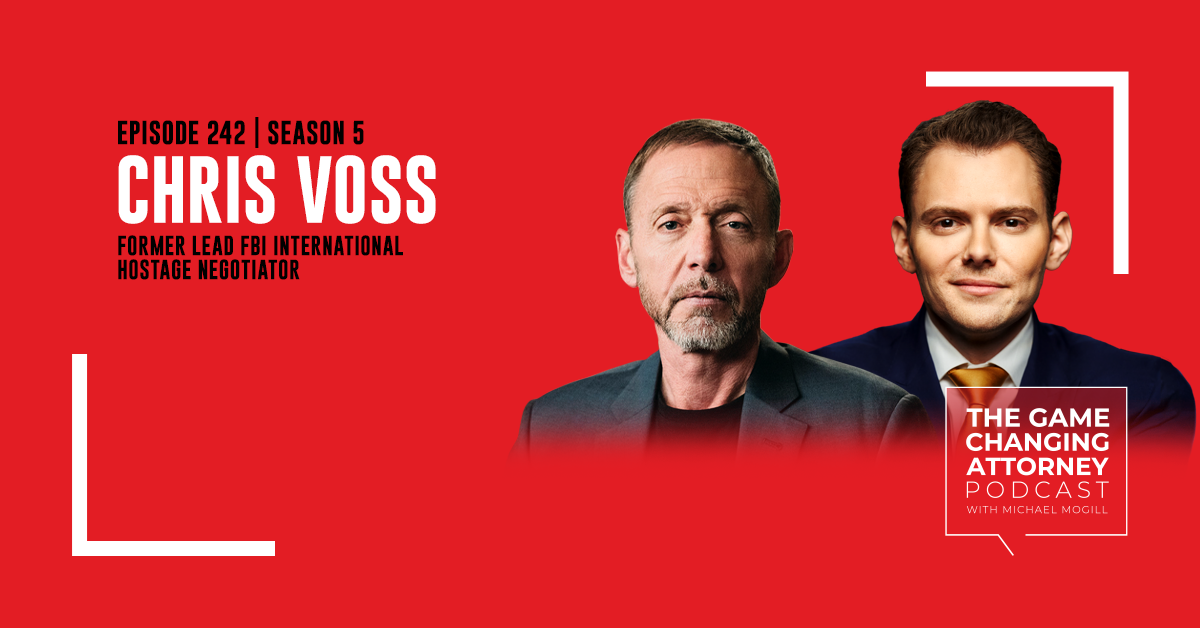
Listen & Subscribe
Show Notes:
Real life vs. T.V. “What’s portrayed to us in the media and on TV most of the time are slam dunk negotiations where you crush the other side. I liken that to playing the slots at Vegas. You celebrate the wins so much that you forget that the algorithm for slots in Vegas is a win one in every 84 tries. They get you to celebrate the win so much that you don’t pay any attention to how often you lose. One victory in every 84 tries? That’s not sustainable.”
The power of a positive mindset. “You’re going to make your deals faster. People aren’t going to push back and fight you only because you’re fighting. There’s a neuroscience approach. If I approach you being combative, there’s going to be a neurochemical change. It’s going to cause you to be combative in return. It’s why law enforcement officers being trained to shout orders is counterproductive because everybody’s IQ drops. When you get into fight-or-flight mode, you’re dumber. And you’re more likely to push back which is going to lengthen the amount of time it’s going to take you to get the deal that you could have gotten to anyway. Because the other side is going to push back, people are going to dig in, and it’s just going to take longer for you to get to your deal. Now you’re going to feel better about it. They’re going to feel better about it because they fought hard and they felt like they earned it.”
The dangers of a “win-win” negotiation. “When I’ve gotten anybody who likes to use the phrase of ‘win-win’ right off the bat, maybe as their opening line, I know, uh, privately, you know, we’ll get into a conversation and they’ll be like, ‘Yeah, yeah, yeah, I just want to come in high so I can end up where I wanted to be all along. I don’t really split the difference. I just lie about what I want so I can get my way and they don’t even know it.’ I mean, it’s just such a profile that has yet to fail me. If you say you want a win-win deal, you start out by telling me what that looks like. If that looks like the only way I win is I do all the work and you reap all the benefits – which is what it is every time I’ve come across it – that’s what it means. Don’t pull my leg here. Don’t deceive by omission. Don’t leave out the material facts that will affect everything. You get a lot farther when people view your words with integrity as opposed to people viewing all your words as tactics.”
Be generous. “What I might view as you being stingy, you might view as being generous. There’s a pretty good chance that most people start making concessions before they get to the table. Almost everybody does. So to some degree, you view your opening approach as being generous. And in using empathy, the fine line here is it’s not about my perspective, it’s about yours. It’s not about whether it’s an accurate or fair perspective, it’s about your perspective. And there’s a pretty good chance that you think that you’ve already made a concession. And you probably have as a human being, because as a general rule, we start making concessions before we ever get to the table because we’re afraid to get people at the table and on your side and then somebody says, ‘I can’t say that. That’s a non-starter.’ So you decide not to go with it. Well, you just started negotiating against yourself.”
Cognitive vs. Tactical Empathy. “Cognitive empathy is about an accurate reading of the other side. And the reason why sociopaths are best at it is because they don’t get in their own way. They don’t think about how you should feel, or how you should react. I’ll ask somebody, ‘How does the other side see this?’ And they’ll go, ‘This is how they should see it.’ Which means ‘That ain’t how I see it.’ It’s how they actually see it. And your sense of right and wrong, your sense of justice, your moral compass is gonna get in your way of recognizing how the other side sees it.”
Negotiation in the digital age. “Each mode of communication should be complimentary to your soul mode. Don’t be lazy. And what do I mean by that? People are going to want to put seven things in an email. They’re going to want to put seven things in a text. A great conversation is where you say one thing or communicate one thing, you wait for it to land, and then you wait for the reaction from the other side. So if you chunk your emails and your text messages down that way, it won’t land for most people don’t. Most people will think for a long time about a single email and spend three or four days on it. Or maybe, I think what everybody’s guilty of, myself included, when you reach your epiphany moment, you just want to share the epiphany. And you forget about how long it took you to get there, or the thinking journey you were on because it’s now so clear to you, that you expect it to be crystal clear when you communicate it as such. I find that to be a shortcoming of me leading an organization. ‘I got it!’ or ‘Do this!’, or I’ll communicate the outcome of the equation, not realizing what kind of a thinking journey I went to get to that moment. And then not wanting to allow the other people to go on the same thinking journey of enlightenment because I’m a time-is-money guy. I think those are some of the issues trying to communicate too much at once.”
Put in the reps. “Negotiation is a perishable skill. There’s no way around it. Jim Camp, who was a friend and a colleague, collaborator, wrote a book in 2002 called Start With No. Having been a coach, he called negotiation a human performance event, which means, simply doing it is not enough to stay good at it. Tiger Woods spent more time on practice courses than he ever did in tournaments. When he was at the top of his game, dominating the world, if he only played in tournaments, we wouldn’t know who he was. He was famous for being coachable. He was famous for the massive amount of time he spent practicing. He even changed his swing at the height of his game. That’s how coachable he was. So he’s always getting into small stakes practice.”
Learn from your losses and your wins. “Win or lose, are you always looking to get better? I came to learn what it meant to have the best chance of success by asking ‘Have I got the best system?’ Now unfortunately, the only time you really question whether or not you got the best system is when you lose or you lose badly. In most human beings, that’s the only time they’re really digging down on what they could have done better. When you’re rocking and rolling and you’re winning, you’re not. Most of the time, you’re not 100 percent sure what you could have done better because the outcome was a victory. You’d be like, ‘Alright, so I won! Let’s celebrate, let’s be happy.’ So, by and large, you don’t mostly put that deep of analysis into it, unless not only you lost, but if you lost big. That’s a problem with winning. You don’t put that sort of introspectiveness on the win when you should.”
What does being a game changer mean to you? “Plow a new ground. I’ve realized that when I was in the FBI, we were plowing new ground on a regular basis. There’s a tremendous amount of freedom there. There are fewer people that are criticizing you and naysayers because you’re out in new ground. I can’t say you’re breaking the rules because you’re out someplace where there were no rules that have been established. There’s no status quo. And to me, the one thing that we’re constantly doing and we’re believing is we’re plowing new ground and emulating the people who we envy in a good way. Like, I envy the success and growth of your organization. I ask, ‘What can we learn from that? And then what can we add to it to plow new ground?’ Like, the world’s problems are not going to be solved by governments. They’re going to be solved by businesses. So how do we plow new ground and have a positive impact in new ways on everything in the world where people want to do well and collaborate? And to me, it’s a lot of fun. Changing a game is plowing new ground.”
RESOURCES & REFERENCES
Nick Nanton
DNA Films
Warren Buffett
Delta
Masterclass
Suits (Television Show)
Mark Wahlberg
Daniel Pink
Start With No (Book)
Lyft
TSA
Empathy and Understanding In Business (Book)
Tiger Woods
Kansas City Chiefs
Kirk Cousins
Roger Bannister
Netflix
Russell Wilson
Seattle Seahawks
Baltimore Ravens
Joe Flacco
Patrick Mahomes
University of Alabama
Marcus Mariota
Walter Isaacson
Elon Musk
Tesla
Starlink
SpaceX
Black Swan Group
Connect with Michael
- Text directly at 404-531-7691
